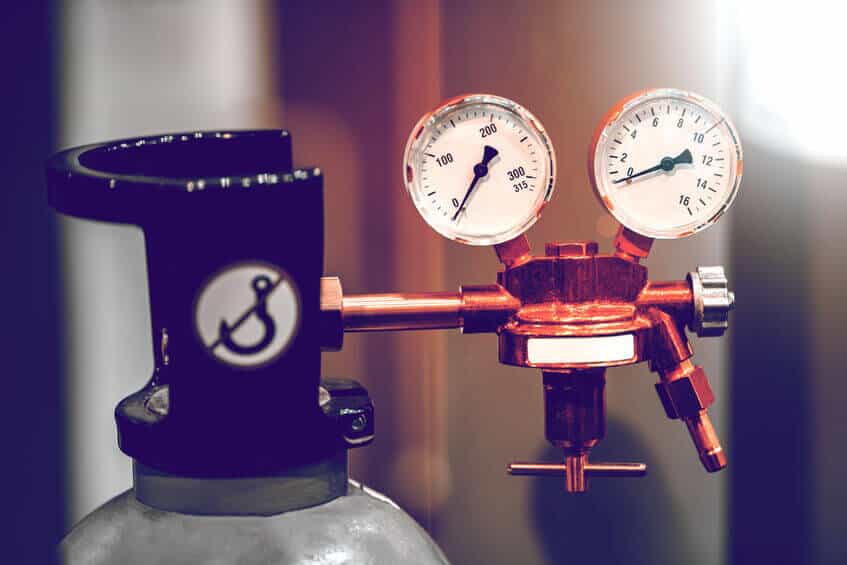Learn More About a Gas Leak
A gas leak can be a dangerous situation to navigate with your property so it’s important to know what to do. Essentially a gas leak will give off significant cues such as the smell of rotten eggs or sulfur or causing fatigue, headaches, and other symptoms. In order to protect the health of those around you it’s best to have a fool proof method to detect a gas leak in case any unexpected issues arise in the future. There are many things that may be helpful to know regarding a gas leak so read on to understand a bit more about them. Speaking to a local plumbing company may also be useful in learning more, until then here is some general background information that can prove helpful.
Can a gas leak in your house kill you?
Inhaling a high concentration of gas from a gas leak can lead to asphyxia; when your body is deprived of oxygen. With more carbon monoxide in the air and less oxygen this can potentially kill you. Common symptoms of asphyxia are feeling of chest pain and fatigue.
Is a small gas leak dangerous?
A gas leak can be dangerous because natural gas is flammable so if there’s a flame or spark in the area of the leak a fire or explosion is possible. Have a professional make sure that gas pipe fittings aren’t loose or the gas pipe isn’t damaged to avoid this trouble.
Is it normal to smell a little natural gas?
It’s ok to have a faint smell of natural gas present when you use your stove or the pilot light for one of your appliances goes out. At any other time it may be that something is wrong. Call a professional for guidance.
Should you open windows if you smell gas?
With a natural gas leak, states and gas companies do not recommend opening windows and advise to just exit the vicinity of the area.
What are the signs of a gas leak in your home?
- The smell of sulfur or rotten eggs.
- A hissing or whistling sound near a gas line.
- A white cloud or dust cloud near a gas line.
- Bubbles in water.
- A damaged gas pipe.
- Dead houseplants.
What do I do if I smell gas?
If you smell a gas leak leave the home or building without activating or turning off any electrical devices or outlets. Even turning off a light or using your phone can be an issue. Leave the doors open as you exit each room to allow for more ventilation. After going a safe distance from the area call your emergency response number and 911 to notify police and fire officials of the leak. Also call your gas company to fix the pipe. Warn others in the area to stay away until the issue has been resolved.
How long should I air out my house after gas leak?
After a gas leak-NOT DURING-you’ll need to allow your house to ventilate for a few hours to make sure that gas has escaped. With a faint smell of gas opening a few windows or doors from your kitchen can be useful yet if the gas from the kitchen has spread to multiple rooms in the house opening all of exterior doors and windows can help. Follow the instruction of the gas company after their repairs to see what should be done.
Is there a device to detect gas leaks?
There are many different devices available to detect a gas leak. It’s important to get a device that’s specifically designed to detect even small gas leaks. A built-in processor may be able to detect natural gas, bhutane, liquid propane and methane gasses. Some may give audible alarm signals, visual cues such as red and yellow lights illuminating to indicate the amount of gas detected, automatic gas shut off triggers, and more.
Will a carbon monoxide detector detect a gas leak?
Leak detectors which hold the title of only one name will typically only detect that one thing. A carbon monoxide detector for example will only be able to detect carbon monoxide and not be able to detect a natural gas leak. What’s more carbon monoxide is very different from methane and that too won’t be able to be detected from the same sensor in that device. Your best bet would be to get a gas leak detector that is able to detect multiple forms of gas from carbon monoxide, propane, methane, natural gas and more.
Where do you put a gas leak detector?
A gas leak detector can be installed for a wall or flush mounting between .30 to 4 meters from the gas fired appliance. Don’t install the gas leak detector near any hobs, extractor fans, vents or sinks. Some gas leak detectors are also installed on the gas pipe valve for emergency shut off activation when readings are too high. This type of model should only be activated by a professional as required by law and for the safety of occupants since handling a gas pipe can be dangerous. Depending on the model and type of gas leak detector you purchase instructions will be clear.
Get Professional Assistance With a Gas Leak
A gas leak can be confusing to detect on your own. To save time and energy gas leak detection devices may be the difference in time that you need to save your life if something is the matter. Gas leak detection can be done by professionals even if you don’t have a device and the area of the leak can be pinpointed so that repairs can be made to the gas line. Call your local plumber today to get the assistance you need for a gas leak or to install a gas leak detector.
Get help with a gas leak in Fort Worth, TX by calling (817) 476-9963 with Molberg Plumbing LLC today!

